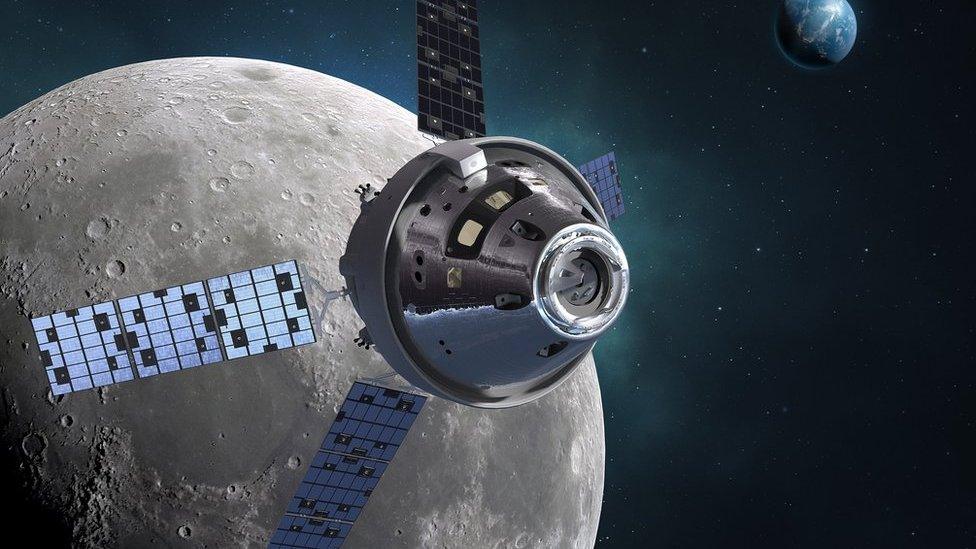'Significant' Cornwall test launch for unmanned aerial vehicle
- Published
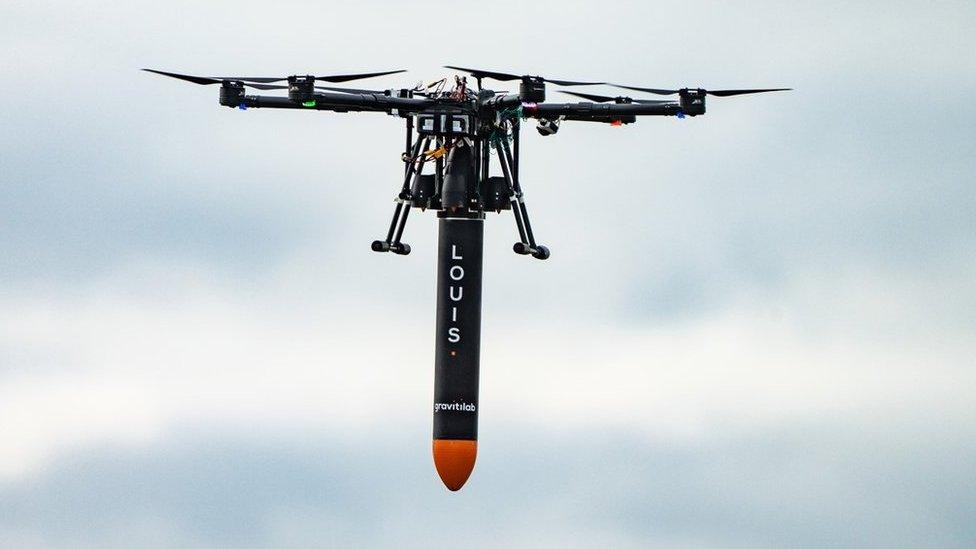
The company behind the launch said it "opened up the world of microgravity research to a new market"
A "significant" test launch of an unmanned aerial vehicle (UAV) is continuing to build on Cornwall's reputation for space and drone testing, experts say.
Gravitilab Aerospace Services launched an UAV at Cornwall's Predannack Airfield on Friday.
The drone ascended to 2,000ft (610m) and then released the UAV which "achieved a period of microgravity".
Microgravity, external is when objects appear to be weightless.
'Eyes of the world'
James Fairbain, business development manager for Cornwall Space Cluster, said the launch and its results were "significant" and "builds on the work done following the spaceport launch".
In January, the first ever satellite mission launched from UK soil, in Cornwall, but ended in failure.
Mr Fairbain said: "Cornwall is a great place for space and drone testing and the eyes of the world have been looking at us."
After the Gravitilab Aerospace Services' launch, he said he hoped further jobs would be created in Cornwall.
Norfolk-based Gravitilab Aerospace Services - which is a space engineering company - said microgravity environments offered "far superior" research and testing conditions and the launch "opened up the world of microgravity research to a new market".
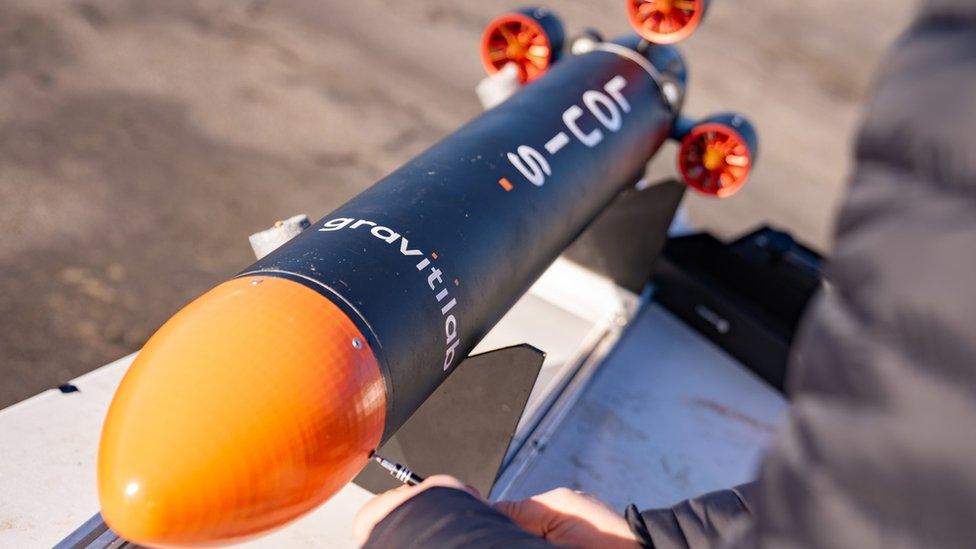
Gravitilab has to date been funded by the UK Space Agency and private capital
Rob Adlard, Gravitilab CEO and technical director, said the technology allowed the "examination of physical processes" without the effect of gravity, such as food going off, to better understand the processes.
He said such tests could help develop processes to support longer shelf life and minimise food waste.
"The only option for terrestrial microgravity testing until now has been to wait several years for access to a drop tower in Germany, which provides two seconds of microgravity," Mr Adlard said.
He said this service could be "delivered locally, is less expensive and as a result of our demonstration flight, we are on target to offer five to 20 seconds" of microgravity.
Gail Eastaugh, director at Cornwall Space Cluster, said: "Cornwall Space Cluster exists to unlock innovation within the space and aerospace sector and companies like Gravitilab are paving the way for the future of the industry.
"Gravitilab, which is currently in discussions with new investors, has to date been funded by the UK Space Agency and private capital."
The project was commissioned by Cornwall and Isles of Scilly Local Enterprise Partnership.

Follow BBC News South West on Twitter, external, Facebook, external and Instagram, external. Send your story ideas to spotlight@bbc.co.uk, external.
- Published10 January 2023
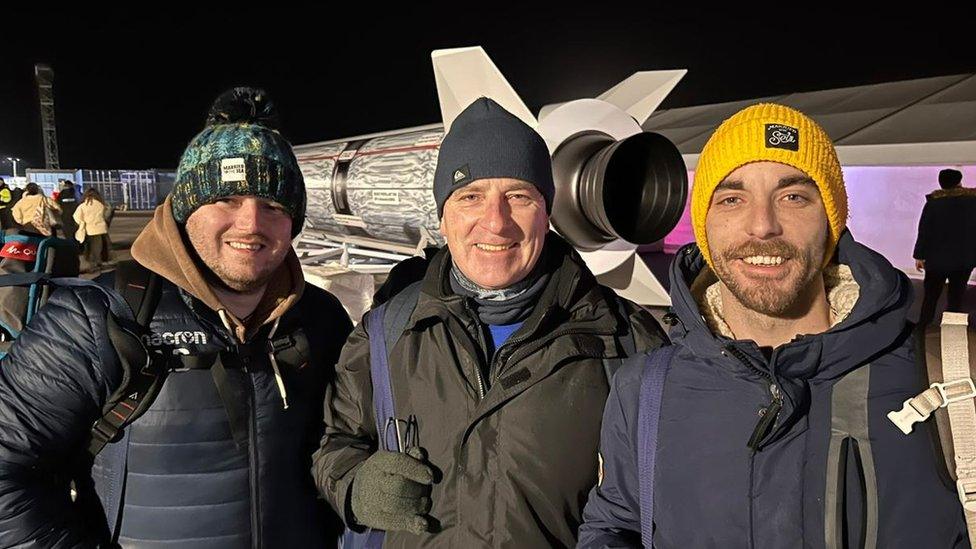
- Published9 January 2023
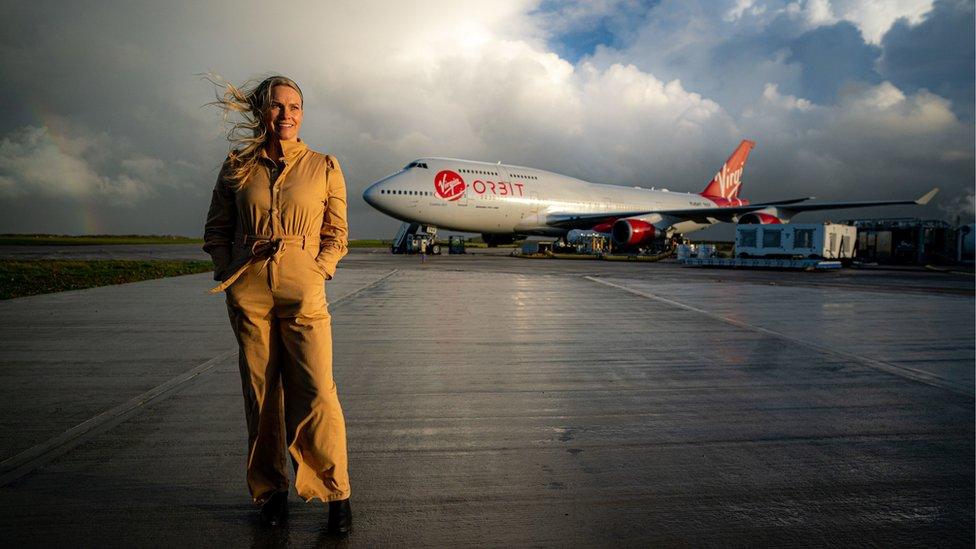
- Published9 January 2023
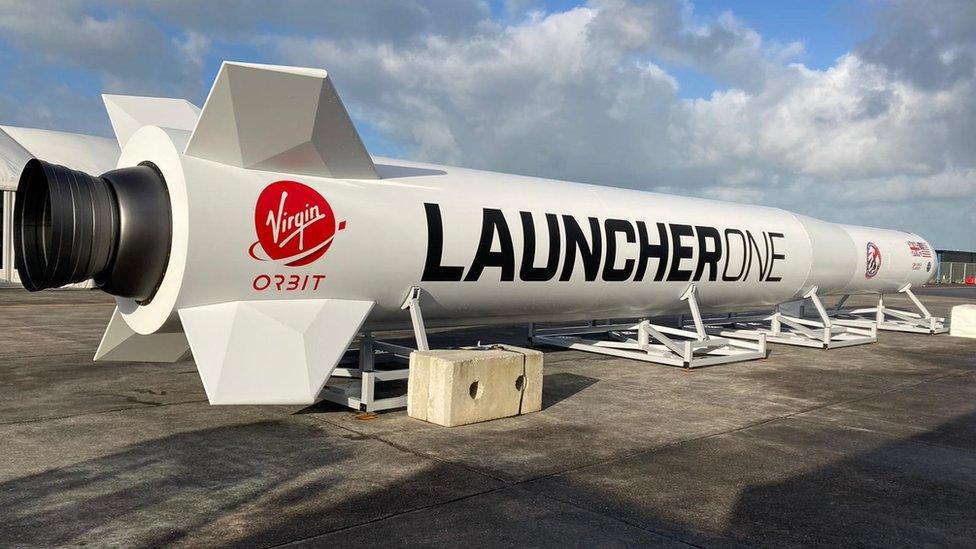
- Published8 November 2022
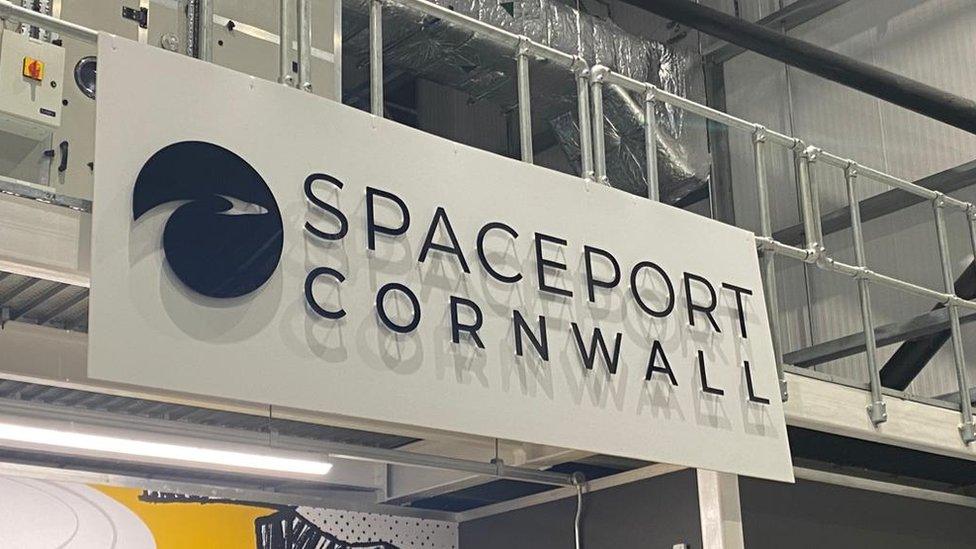
- Published25 August 2022
